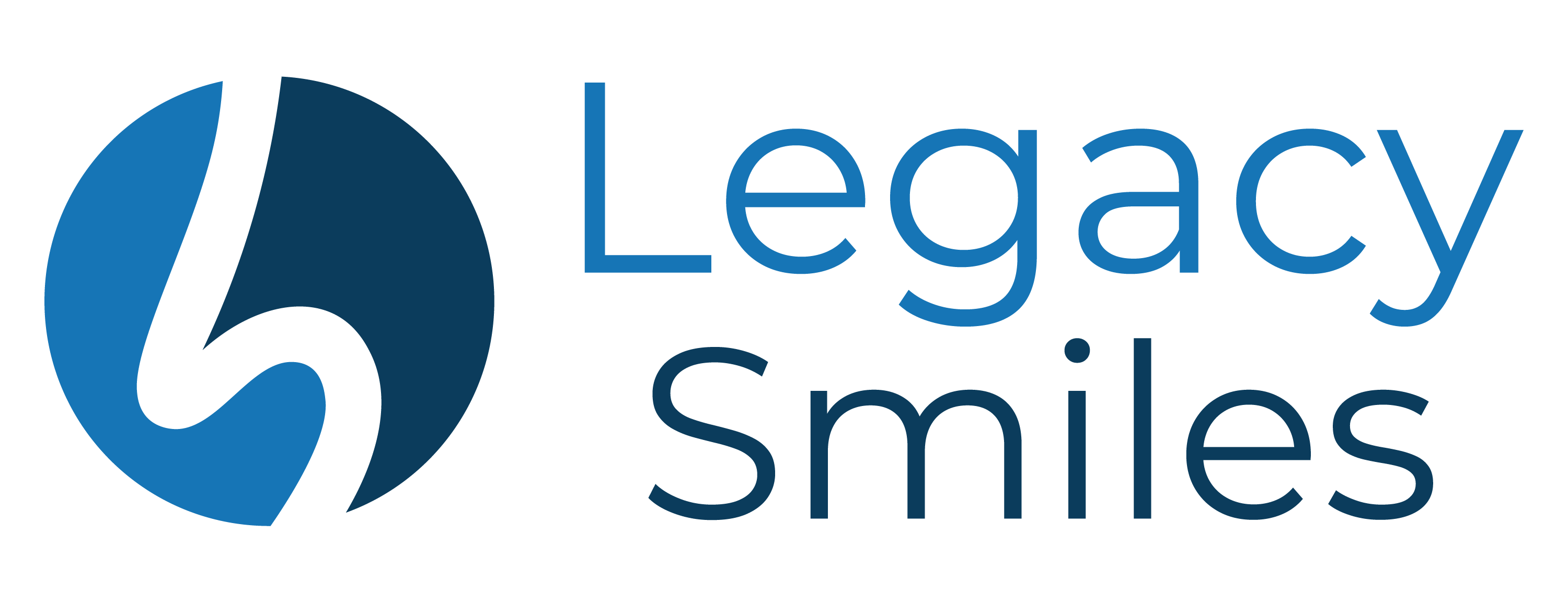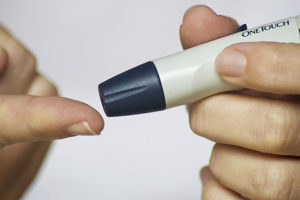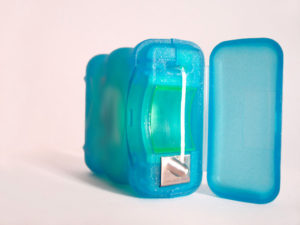Dentist in Frisco, TX
 “Tooth worms” are the cause of tooth decay. That was the headline of a Sumerian text from around 5,000 B.C.E. Fortunately, the dental industry has evolved since then and we know “tooth worms” don’t exist. Here’s how dentistry has evolved into the comfortable, safe, and beneficial science of today.
“Tooth worms” are the cause of tooth decay. That was the headline of a Sumerian text from around 5,000 B.C.E. Fortunately, the dental industry has evolved since then and we know “tooth worms” don’t exist. Here’s how dentistry has evolved into the comfortable, safe, and beneficial science of today.
In the Beginning
Did you know that the ancient Egyptians had designated doctors for teeth? Evidence has been uncovered suggesting the Chinese used acupuncture to treat pain associated with tooth decay as early as 2700 B.C.E.
Additionally, in 500 B.C.E., Hippocrates and Aristotle wrote of treating teeth and oral diseases by using sterilization procedures and red-hot wires. They also spoke of using these red-hot wires to stabilize jaw fractures and bind loose teeth.
The Visionary Thoughts of the 1600s-1700s
According to the Academy of General Dentistry, the 1600s and 1700s were a gold mine of innovation in the dental world. In 1695, Charles Allen published the first ever English dental textbook entitled The Operator of Teeth. In the book, he advises using a homemade toothpaste from powdered coal, rose-water, and “dragon’s blood” to keep teeth clean and white. Allen also suggests using dog’s teeth for transplants and even references wisdom teeth in his book.
In the 18th century, Pierre Fauchard was well ahead of his time in the medical practice when his master work The Surgeon Dentist was published. For the first time, dentistry was described as a modern profession. Some notable highlights in the book include sugar being the cause of dental caries (cavities), braces being used to correct teeth position, and the concept of a dentist’s chair light.
The Progressive 1800s
The discoveries and inventions of the 1800s were significant. In 1816, Auguste Taveau developed the first form of dental fillings made out of silver coins and mercury. In 1840, Horace Wells demonstrated the use of nitrous oxide to sedate patients and Thomas Morton employed the use of ether anesthesia for surgery.
That same year, Horace Hayden and Chapin Harris boosted modern dentistry by opening the first dental school, inventing the modern doctorate of dental surgery, and starting the first dental society. By the end of the 1800’s, porcelain inlays, the first mechanized dental drill, and the toothpaste tube had all been invented.
Scientific Advancement of the 1900s
The scientific development of the 1900s gave birth to some amazing advancements in the dental industry. Electric drills became available due to the invention of electricity. In 1907, precision case fillings made by a “lost wax” casting machine was invented to fill cavities, and Novocain was introduced into US dental offices.
In 1955, Michael Buonocore described the method of tooth bonding to repair cracked enamel on teeth. Years later, the first fully-reclining dental chair is introduced to put patients and dentists at ease. By the 1990s, “invisible” braces were introduced, along with the first at-home tooth bleaching system.
What Will the Future of Dentistry Hold?
Today, dental professionals are investigating the links between oral health and overall health. The use of gene-mediated therapeutics to alter the genetic structure of teeth to increase resistance to tooth decay is receiving attention. Some researchers believe that there may be a way to grow a new tooth structure around weakened enamel. Only time will tell what the future of dentistry will bring, but our office is dedicated to seeking the most effective modern technologies as they arise.
Contact our dentist to schedule a comprehensive oral examination.

 Sugary, sticky, and sweet candies can damage your teeth by increasing your risk of decay. Though gum can be considered a type of candy, chewing sugarless gum approved by the ADA can actually help protect teeth and prevent tooth decay. Here’s what you need to know about gum and your teeth
Sugary, sticky, and sweet candies can damage your teeth by increasing your risk of decay. Though gum can be considered a type of candy, chewing sugarless gum approved by the ADA can actually help protect teeth and prevent tooth decay. Here’s what you need to know about gum and your teeth During a comprehensive dental examination, our team will look for signs of oral cancer. Early detection is key with oral cancer. If caught early, most forms of oral cancer are treatable. Our dental team is trained and educated to identify oral cancer.
During a comprehensive dental examination, our team will look for signs of oral cancer. Early detection is key with oral cancer. If caught early, most forms of oral cancer are treatable. Our dental team is trained and educated to identify oral cancer. Your mouth contains hundreds of bacteria. Before you reach for the toothbrush and mouthwash, understand that not all bacteria are bad. Here’s what you need to know about the bacteria that makes its home in your mouth.
Your mouth contains hundreds of bacteria. Before you reach for the toothbrush and mouthwash, understand that not all bacteria are bad. Here’s what you need to know about the bacteria that makes its home in your mouth. Did you know that 1 in 5 cases of total tooth loss is linked to diabetes? Diabetes affects your entire body including your mouth and teeth. Here are a few ways diabetes can impact your oral health:
Did you know that 1 in 5 cases of total tooth loss is linked to diabetes? Diabetes affects your entire body including your mouth and teeth. Here are a few ways diabetes can impact your oral health: The American College of Prosthodontists reports that about 178 million American adults are missing at least one tooth. Nearly 40 million have lost all of their permanent teeth.
The American College of Prosthodontists reports that about 178 million American adults are missing at least one tooth. Nearly 40 million have lost all of their permanent teeth. Loose teeth, bad breath, and painful, bloody gums. These are among the signs and symptoms of periodontal, or gum, disease. In many people, periodontal disease can start without showing obvious symptoms. If left untreated, you risk irreparable damage to your teeth and gums. The good news is that periodontal disease is preventable. In fact, one of the most effective tools for preventing the disease only takes a minute of your time each day.
Loose teeth, bad breath, and painful, bloody gums. These are among the signs and symptoms of periodontal, or gum, disease. In many people, periodontal disease can start without showing obvious symptoms. If left untreated, you risk irreparable damage to your teeth and gums. The good news is that periodontal disease is preventable. In fact, one of the most effective tools for preventing the disease only takes a minute of your time each day. We use our tongues every day to talk, taste, and swallow, yet we rarely take time to think about this flexible organ. Here are 9 things you may not know about the tongue:
We use our tongues every day to talk, taste, and swallow, yet we rarely take time to think about this flexible organ. Here are 9 things you may not know about the tongue: An injury to your mouth can be a painful, expensive experience. For athletes, mouth and tooth injuries are a very real risk. Mouthguards are an excellent tool for protecting your mouth from injury and harm. Our team can help you find a solution that protects your teeth while you play.
An injury to your mouth can be a painful, expensive experience. For athletes, mouth and tooth injuries are a very real risk. Mouthguards are an excellent tool for protecting your mouth from injury and harm. Our team can help you find a solution that protects your teeth while you play. A canker sore can make eating, drinking, and talking difficult and even painful. Maintaining your oral health by brushing and flossing may also be difficult with a sore in your mouth, but keeping up with your daily oral hygiene routine is an important step in the healing process. We’ve put together a short guide to everything you need to know about canker sores.
A canker sore can make eating, drinking, and talking difficult and even painful. Maintaining your oral health by brushing and flossing may also be difficult with a sore in your mouth, but keeping up with your daily oral hygiene routine is an important step in the healing process. We’ve put together a short guide to everything you need to know about canker sores.